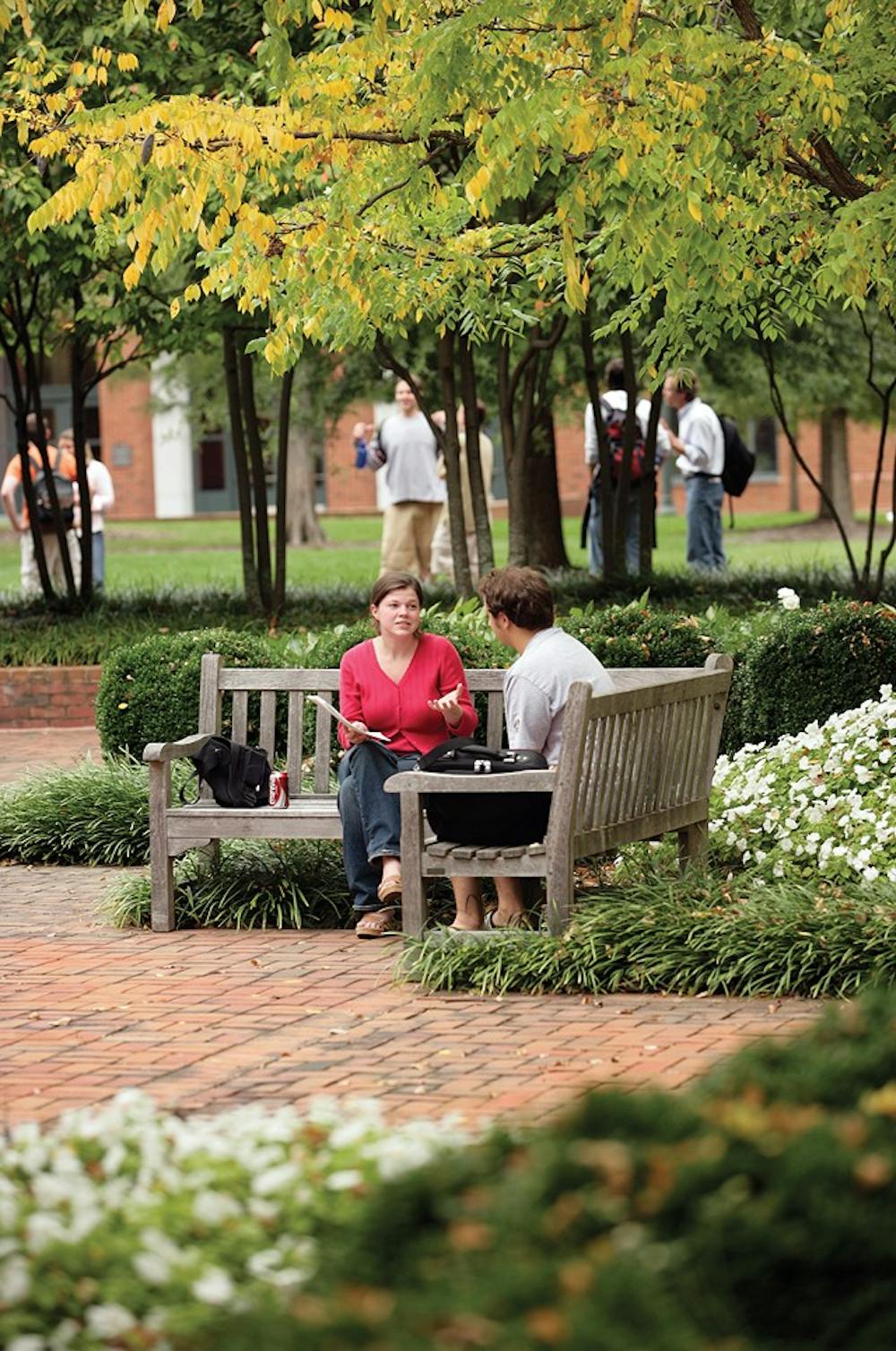At a University chock-full of libraries, group study rooms and silent reading enclaves, my favorite study spot isn’t in a building at all. I try to study outside as much as possible, and I am not alone in this regard. On warm days, the tables outside of Newcomb and the steps of the Rotunda are packed with students talking, laughing and studying. The demand for outdoor study spaces can be so great that it can be difficult to find an available space. Research also suggests that studying outdoors has many positive impacts, both for students and the environment — expanding outdoor study spaces would benefit the University community.
Studying outside can boost productivity and concentration for many. Cramming for a test on the first floor of Alderman is never fun, and is rarely as productive as one wants. The perception of libraries being the ideal place to study is not necessarily true — research suggests that being outside in nature can boost memory by up to 20 percent when compared to completely artificial, urban environments. Outdoor study spaces better connect students to nature, tapping into the environment’s natural productivity boost.
Nothing says stress like Clemons Library’s first floor, but indoor study spaces in general can add unnecessary stress to your life. Simply being outside has been found to boost endorphins and lower stress hormone levels. Exposure to sunlight provides vital vitamin D, and the fresh air of the outdoors is a welcome change to the dry, air-conditioned buildings. The University is a competitive and challenging environment— studying outside is an easy and enjoyable way to stay relaxed and grounded.
If you’re like me, the number one productivity killer is not lack of motivation, but presence of distractions. Some studies suggest that students do not work for longer than two minutes before checking social media. In an age of distraction, getting outside can be a game-changer. A paper studying the effects of doing activities outside, in relatively natural settings, found that symptoms of ADHD decreased. While this was specifically looking at clinical ADHD, the principle applies — studying outside reduces distractions and increases focus.
Adding more outdoor study spaces is good for the environment, as the increased focus on nature has a laundry list of proven benefits. Improved air quality, resource conservation and cooler spaces are just a few examples. The expansion of outdoor study spaces would necessarily lead to the creation of more green space, as any outdoor space would require trees for shade on hot days. This fits in with the University’s Sustainability Plan, which encourages the University to Engage, Steward and Discover our sustainable environment. More outdoor study spaces would only help that goal.
Succeeding in the world today requires innovation and collaboration, and the presence of outdoor study spaces provides avenues for both. Education Prof. Stanley Trent stated that outdoor study spaces are a great way to get students to “access the curriculum in different ways,” and to increase student collaboration. The change of study environment can be very helpful from an educator’s perspective. Businesses are also catching on, as corporations are looking for ways to harness the outside environment to boost productivity and collaboration. This trend has accelerated over the past few years. For example, Google is pioneering the creation of collaborative spaces to add value.
By expanding existing outdoor study spaces and creating new ones, the University can boost student productivity, inspire collaboration and reduce stress. There are benefits for people and nature alike, as the abundance of green space makes the University more aesthetically appealing and environmentally friendly. Now is the time to ditch Clem 1 and take your books outside — the University should create spaces to support that goal.
Connor Fitzpatrick is an Opinion columnist for The Cavalier Daily. He can be reached at opinion@cavalierdaily.com.







